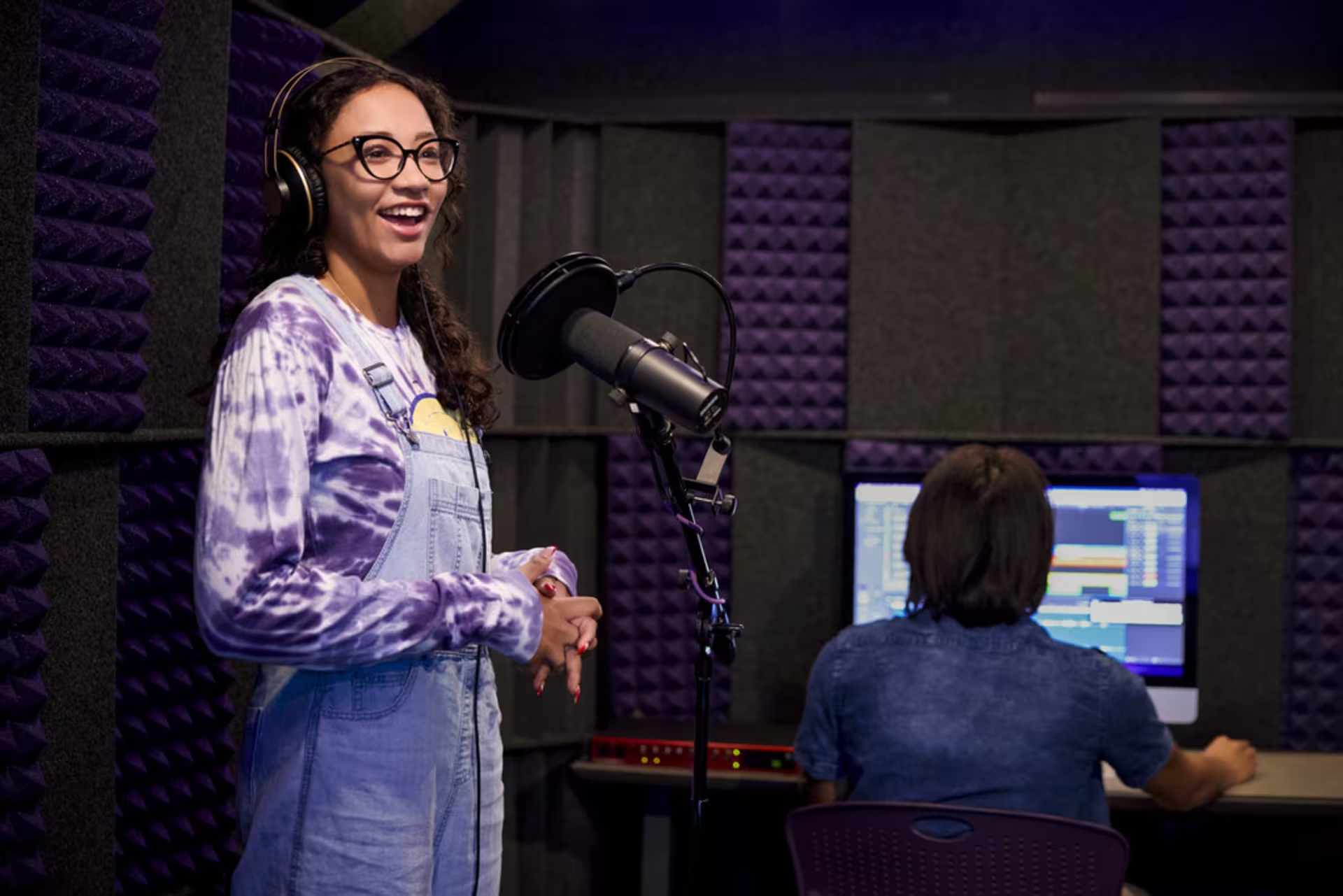


The Bachelor of Arts in Commercial Music program at Grand Canyon University is designed to equip aspiring musicians with comprehensive education spanning the diverse spectrum of music genres within the ever-evolving music industry. This program is centered around songwriting, media, music production and music business and entrepreneurship, offering you a gateway into the dynamic music landscape.
Whether you dream of taking center stage in popular music performance or navigating the intricate domains of music and entertainment business, our program can cater to your aspirations. Within this program, you'll embark on a holistic journey through the music industry.
This journey encompasses specialized music education that can harmonize your performing technique while diving into the following:
These elements are not just taught; they are imparted through the lens of a distinctively Christian worldview, providing a unique perspective within the framework of a comprehensive Christian education in the arts and sciences.
The combination of business knowledge and specialized music education can also prepare you for roles in industries such as music marketing, artist management, event coordination and entrepreneurial ventures within the music and entertainment field. Beyond honing your musical talents, this degree nurtures adaptability, helping you potentially grow in the multifaceted and ever-changing music industry.
Graduates with a bachelor’s in commercial music can explore a variety of career options within the dynamic music industry. These career avenues may include:
GCU has held institutional accreditation since 1968 when it received accreditation from the Higher Learning Commission. Accreditation is a testament to the strength of a university's program and overall quality of the school. For more information about our accreditations, please visit our accreditation page.
Instrumental music is constantly evolving, which may leave you with unanswered questions. Here are some of the most asked questions regarding the Bachelor of Arts in Commercial Music degree program.
Can I perform music professionally with a BA in Commercial Music degree?
Is a degree in commercial music worth it?
How do I get into commercial music production?
What can you do with a bachelor’s degree in commercial music?
Up to 90 credits, only 84 can be lower division
Credits: Fill out the Lopes Eval to find out what will transfer
Admission Requirements (Bachelor's)
OR 2.5+ Unweighted GPA and
Admission requirements may differ based on degree level, program and modality, or transfer status. Some programs of study may require a higher GPA and/or other qualifying criteria for admission. Please review full admission and program requirements in the University Policy Handbook.
*Math and reading only on a 1600 point scale (test date after 3/1/2016). SAT score of 1380 required for 2400 point scale (test date before 3/1/2016).
As a commercial music major, you will study the ever-changing world of music with a strong emphasis on social media and business aspects. This focus can teach you how to promote your work and navigate the multifaceted music industry landscape.
While our teachings and discussions are deeply rooted in Christian values, this approach fosters exploration at the intersection of music and spirituality, encouraging ethical considerations in the industry while demonstrating how faith can profoundly shape artistic expression. Knowledgeable faculty aim to teach beyond musical talent, encompassing the realm of commercial music and entertainment by:

In the bachelor’s in commercial music program, you can access a wide array of courses cultivating hands-on skills and practical expertise. One of the focal points is sound reinforcement techniques, a fundamental skillset for those aspiring to manage audio systems during live performances. Through immersive learning experiences, students will be taught to manage audio equipment, helping to ensure that every note and nuance reaches the audience with precision and clarity.
This commercial music degree curriculum places an emphasis on the intricacies of recording and video production. These courses can offer valuable insights into the realm of studio work and the art of music video creation. By delving into the basics of recording, you'll study how to capture the essence of a musical composition, opening the door to opportunities for creative expression.

Ready to turn your passion for music into a career? Join our BA in Commercial Music program and study the skills necessary to perform, produce, write songs and seek professionalism in the music business. Unlock your potential in the ever-evolving music industry today.